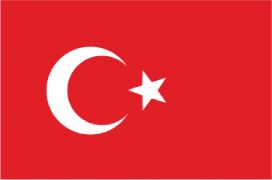On June 24, 2018, general and presidential elections were held to elect the first president and deputies, marking the beginning of the transition towards an executive presidential system. According to the official results announced by the Supreme Election Council on July 4, 2018, President Recep Tayyip Erdoğan won an absolute majority in the presidential election with 52.59% of the vote. For additional information, see “Recent Developments and Summary — Political Conditions”.
Both presidential and parliamentary elections are to be held every five-years on the same date.
In the May 14, 2023 presidential and parliamentary elections, Recep Tayyip Erdoğan had 49.52%, Kemal Kılıçdaroğlu had 44.88% and Sinan Oğan had 5.17% of the votes. As no candidate received more than 50% of the valid votes to win directly, a second round of elections, between Recep Tayyip Erdoğan and Kemal Kılıçdaroğlu was held on May 28, 2023. On May 28, 2023, Recep Tayyip Erdoğan was reelected as President by receiving 52.18% of the vote. Kemal Kılıçdaroğlu received 47.82% of the votes.
The next presidential and parliamentary elections are scheduled to be held on May 14, 2028. On March 8, 2024, President Recep Tayyip Erdoğan announced that he will not run for reelection when his term comes to an end in 2028.
On March 31, 2024, local elections in the Republic were held throughout the country’s 81 provinces. On May 7, 2024, the final results of the elections were published in the Official Gazette No.32539. According to the final results, while Republican People’s Party (CHP), Justice and Development Party (AKP), Peoples’ Equality and Democracy Party (DEM Party), Nationalist Action Party (MHP) and New Welfare Party (YRP) won 35, 24, 10, 8 and 2 provincial municipalities respectively, İYİ Party and Great Unity Party (BBP) each won 1 provincial municipality. Furthermore, the main opposition party, CHP, won across the biggest Turkish cities such as İstanbul, İzmir, Bursa and the capital Ankara. In particular, the party’s candidates in Türkiye’s largest city İstanbul and capital Ankara, Ekrem İmamoğlu and Mansur Yavaş, were re-elected.
Local elections in the Republic are held every five years. The next local election is scheduled to be held on March 25, 2029.
The Turkish military establishment has historically been an important factor in Turkish government and politics, interfering with civilian authority four times between 1959 and 2021 (in 1960, 1971, 1980 and 2016). Each time, the military withdrew after the election of a new civilian government and the introduction of changes to the legal and political systems.
Any further negative changes in the political environment of the Republic may affect the stability of the Turkish economy or its institutions. In addition, any instability in the Turkish economy and financial system may adversely affect the Republic’s credit quality.
Furthermore, the failure of the Turkish Government to implement its proposed economic and financial policies, including those set forth in the Republic’s Economic Reform Agenda and the 2023-2025 Medium Term Program, may also adversely affect the Turkish economy and the Republic’s credit quality. For additional information, see “Recent Developments and Summary”.
The Republic may not be able to refinance its domestic and international debt.
The Republic has sizeable amounts of domestic and international debt and its domestic debt has a relatively short maturity structure. Central government gross domestic debt stock was approximately TL 4,191,467 million and central government gross external debt stock was approximately U.S.$122,038 million as of the end of August 2024.
On December 8, 2016, the Government announced plans to establish a credit guarantee fund (the “Credit Guarantee Fund”), a joint-stock company founded by Cabinet decree authorized to provide guarantees for small
S-12
